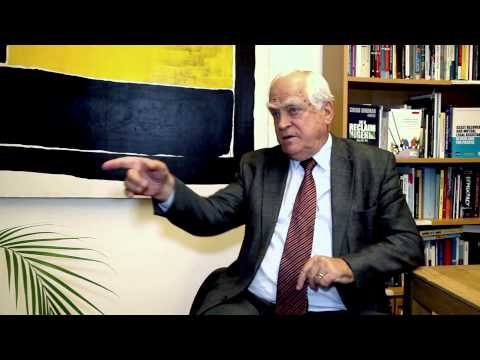China’s investments in natural resources in Africa and its implications for economic development and political accountability - Interview with Peter Eigen - Part VI
The governance challenges of natural resource extraction are enormous. What can be done to improve natural resource governance? ECC’s Stephan Wolters talked to Peter Eigen, Founder of Transparency International and Chair of the Extractive Industries Transparency Initiative (EITI) from 2006-11. As a leading expert on the challenges of corruption, he provides exciting insights and evaluates success and failure of various approaches, including EITI.
"Generally, I am very pleased with Chinese investments there, because it gives Africa more options. It has helped to raise the price of natural resources which makes it possible for Africa to grow faster, a pre-condition for escaping poverty. The Chinese often don't make their investments conditional e.g. on good governance requirements, which is a great luxury for some African leaders. The question is really whether the leadership in Africa has learned its lessons of how destructive and damaging bad governance was for it. I would say that many countries in Africa now have a leadership and a population that do not tolerate the same degree of corruption that we, the Western countries introduced in many of these countries. We should not forget that until the late 1990's, systematic corruption was allowed in our countries.
In Germany, you could deduct bribes for foreign investments from your taxes. It very often distorted economic decision making and supported corruption, and was in my opinion the main cause of poverty and misery in resource-rich countries. So it is very hard for us to criticise the particular risk of corruption that comes with Chinese investment because they will answer that they never allowed their exporters or investors to bribe outside Chinese borders. Some of their methods like barter arrangements, however, are extremely dubious. If you say, "You allow me to mine all your copper and I will give you five million dollars worth of roads, or railroads, or ports etc.," this is a recipe for disaster because each one of these projects is a very complex negotiation, which has to be prepared properly and often takes years.
If you throw these two things together, it cannot work. Therefore, there are a number of activities that one has to watch very carefully, but I think this task is up to the leaders of Africa. I talked to the Minister of Mines of Ghana and he said "We have learned our lesson. We have seen corrupt deals in the past with our European friends. We are very careful now and compare the offers we have from China, Russia, Brazil, Germany, Canada, Japan, and we take what is best for us. We do not need conditionality. We use our own common sense, because we know that we owe it our people to sell our natural resources in a way that is sustainable, helpful and leads to real development in the country."
Please find the Video Series Overview here.
Further resources:
Read this blog about Chinese aid, trade, loans, and investment in Africa by development policy expert Deborah Brautigam from Johns Hopkins University.










